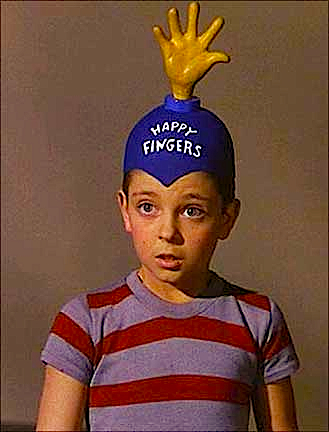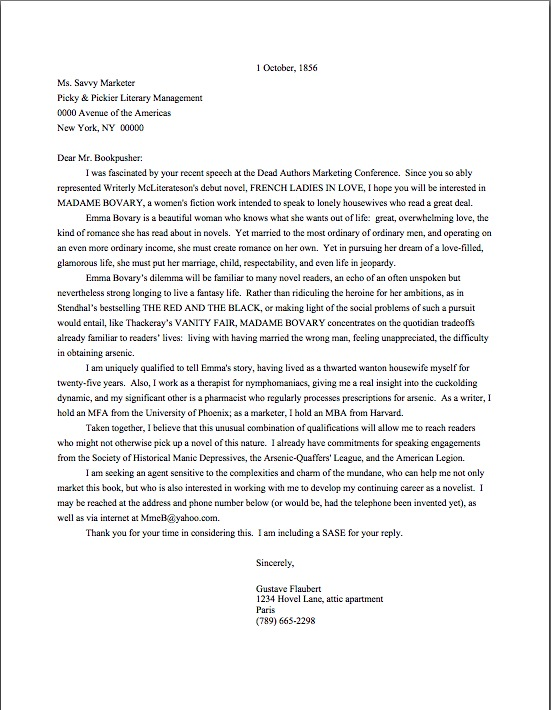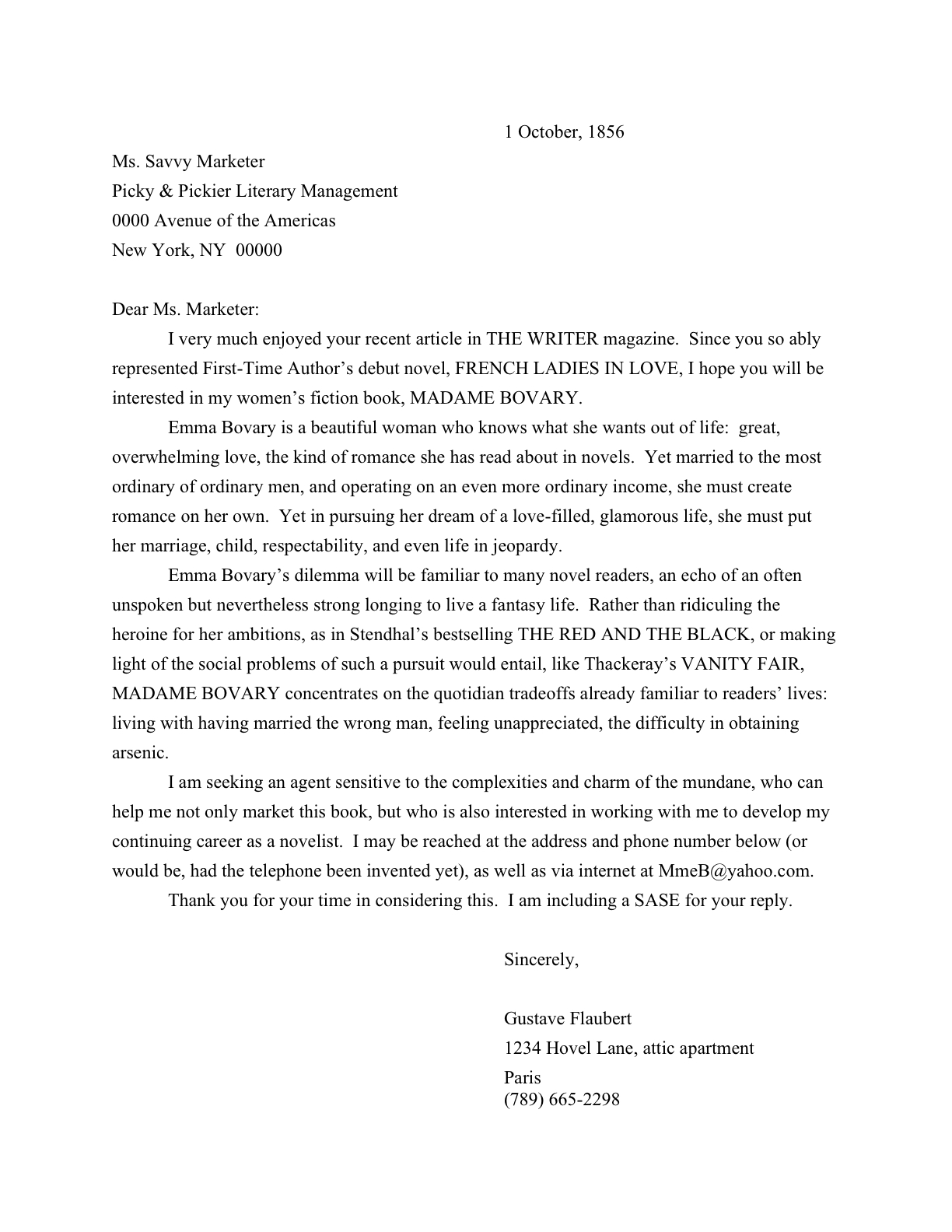I had intended to devote Labor Day weekend entirely to posts on craft, campers, on the theory that since simply scads of you will be spending the next few days sending out flotillas of fresh queries and/or submissions, you might enjoy a creativity break. I find, however, that I have a few more things to say about submission that you might want to know before Tuesday rolls around.
How did I know you were gearing up to hit the SEND key? Well, the New York-based publishing world’s annual holiday has traditionally run from the end of the second week of August through, you guessed it, Labor Day. The presses no longer halt with quite the completeness with which they did in days of yore, but still, it’s a hard time to pull together an editorial committee.
Why should that affect the mailing and e-mailing habits of writers trying to break into the biz? Simple: when the editors are not in town, agents have an awfully hard time selling books to them, so agency denizens tend to take those same weeks off.
Again, that’s less true than it used to be, but if the Submission Fairy had whacked you with her magic red pencil last week, teleporting you into the average agency, you would have been chased out of the building by a smaller mob than would have caught up pitchforks and torches in, say, October.
In case I hadn’t mentioned it lately: don’t show up at an agency unless invited to do so, aspiring writers. And hold off on the calls until one of the member agents offers to represent you, please.
Admittedly, even in the bad old days, agencies were often not universally deserted in late August: the luckless soul left to guard the fort often got quite a lot of reading done. Still, it wasn’t then and isn’t now not the worst idea for a writer eager to hear back on a query or submission to hold off until after everyone returned to work with a suntan.
Thou shalt not query or submit between July and Labor Day has featured prominently in the annals of credible advice to writers for decades, and rightly so. Which may render what I am about to say next something of a surprise: if you are planning to query or submit to a US-based agency via e-mail, I would implore you to hold off until at least the middle of next week.
And the masses collapse onto the nearest chaises longues, overcome by astonishment. “But Anne,” they shout, and who could blame them? “I’ve been holding off! For the latter half of the summer, I have been twiddling my thumbs, biting my nails, and playing endless games of cat’s cradle, all to keep my itchy keying finger from hitting the SEND key while the agent of my dreams was likely to be vacating. Since I have every reason to expect that the AOMD will be flinging herself into her desk chair bright and early Tuesday morning, clutching that latté her eager assistant Millicent got her and scowling at the stacks of manuscripts awaiting her august attention — or, rather, her post-August attention — why shouldn’t I hammer on that SEND key like Hephaestus forging armor for the Olympian gods? I have a three-day weekend in which to ignore my kith and kin while I pursue my dream!”
You just answered your own question, itchy-fingered many: because any established agent — and thus any Millicent employed in an established agency — will be greeted upon her return to the office by the small mountain of submissions send over the last month. Her inbox overfloweth. And since millions of aspiring writers will also have been actively avoiding the warm embrace of kith and kin in order to crank out e-mailed queries and submissions this weekend, a hefty percentage of that overflow will be from writers just like you.
Why might that be a problem, if she and Millicent down those lattés, roll up their sleeves, and work through those queries and submissions in the order received? Well, let me ask you: if you had 1,572 messages from total strangers gracing your inbox Tuesday morning, how would you feel about it? Delighted to see that literature was alive and well in North America — or just a trifle grumpy at the prospect of working through them all?
Still not seeing the wisdom of not adding your query or submission to that queue? Okay, think of it this way: would you rather that Millicent first cast eyes upon your query as #1376 of Tuesday, or as #12 of Friday? Would you rather that she read your submission with fresh eyes — or with eyes bleary from the imperative of reading her way down to the point where her desk is visible from above?
Just something to think about. Naturally, a querier or submitter exercises very little control over the conditions under which Millicent reads his work, but if a savvy writer can minimize the chances that she will be assessing it at a point when she will predictably be swamped, why not rein in those itchy fingers for another few days?
Speaking of the trouble into which over-eager fingers can land their owners, as well as our ongoing focus on some of the unanticipated side effects of successful querying and submission, I’d like to devote today’s post to a couple of excellent questions from long-time members of the Author! Author! community. First, let’s learn of the travails faced by witty gun-jumper Robert:
I must have smoked something funny during Querypalooza, because I prematurely sent an agent my query. Only fifty pages in, with no end in sight, I was asked for my completed MS! How would one tiptoe out of this situation, keeping the agency interested?
I love the blog and appreciate every moment you put into it. There is nothing out there that comes close in style, entertainment, or value. Thanks for the tools to push my writing career forward.
Why, thank you, Robert; how kind of you to say so. Also: what on earth were you thinking?
Ah, how loyal you all are; I can feel half of you rushing to Robert’s defense. Lower those pitchforks a trifle, please, so I may hear you better. “Whoa there, lady — what’s with the indignant italics? It can take months to hear back from an agent these days; why couldn’t he have sent out that query the nanosecond he whipped it into shape?”
Well, obviously, he could, because he did, but I get what you’re saying: querying turn-around times can indeed be quite lengthy. One can also, as I know some of you can attest, hear back within an hour of hitting SEND, if someone at the agency of your dreams happens to be sitting in front of a computer at the time.
To quote the late, great Fats Waller, one never knows, does one?
What one does know — and what I suspect has sent our Robert into a belated fit of qualm — is that for fiction, agents expect that any manuscript a writer queries or pitches to them will be at the completed draft stage. Oh, they’re aware that occasionally, an overeager writer will begin setting up prospects a little early, but Robert is quite right to assume that if he ‘fessed up, the agent of his dreams would not be amused.
So how would a savvy writer, in Robert’s words, tiptoe out of this situation, keeping the agency interested? Simple: he wouldn’t.
Was that behemoth thunk a sign that half of you just introduced your lower jaws to the floor? I’m not entirely surprised: as we have been discussing throughout this series, the apparently immortal myth that an agent requesting pages will only accept them if the writer breaks all extant land speed records in getting the manuscript under her peepers has encouraged a whole lot of successful queriers and pitchers to do a whole lot of silly things. Or if not silly, than at least unstrategic — not bothering to spell- or grammar-check before hitting SEND, for instance. Neglecting to proofread, to make sure that the coworker called Monica in Chapter 1 is not Monique in Chapter 5. Fudging the typeface or the margins, so that a particularly strong scene or line will fall within the requested 50 pages, not thereafter. Sending 52 pages, when the agent asked for 50, for the sake of the aforementioned bit. Or simply printing the darned thing out the instant the request for materials arrives and dashing to the post office, only to realize halfway home that the packet did not include a SASE.
Oh, you may laugh, but I know good writers — gifted ones, intelligent ones, ones whose prose a literature lover could have sung out loud — that have made each and every one of these mistakes. Sometimes more than one at a time.
They, like Robert, have jumped the gun, and it did not pay off for them. It seldom does, because — feel free to chant it with me, those of you who have been following this series — since a submitter gets only one chance to place a particular manuscript under a particular agent’s eyes, it simply does not make sense to hit SEND until that manuscript is polished enough to represent her best work.
If you don’t mind my pointing it out, Robert, that level of polish is rarely a characteristic of a first draft. Even if you had hit SEND when you were only a chapter away from finishing the novel, you might have been better off taking the time to read and possibly revise it before querying. But in thinking otherwise, you certainly were not alone: the overwhelming majority of first novels are queried, pitched, and submitted while still in the first-draft stage.
“Okay, I get it,” jaw-rubbers everywhere say sullenly. “My pages should fairly shine before they wing their way to Millicent. But what is my buddy Robert to do? He meant no harm; he had merely assumed that the most he would be asked to send was 50 pages, tops. I hate to see him punished for that piece of misapprehension.”
And he needn’t be, if only he bears in mind the principle that his gun-jumping pretty clearly shows he did not embrace in the first place: when an agent requests a full or partial manuscript, she is not expecting to receive it right away.
So if Robert could conceivably complete that manuscript within the next year to year and a half, he may eschew tiptoeing altogether: he could simply apply his nose diligently to the proverbial grindstone until he finished — and spell-checked, resolved the burning Monica/Monique debate, etc. — and then send it off as requested. No need to apologize in his cover letter, either: since he had no reason to believe that the AOHD had cleared her schedule in anticipation of its arrival, he should simply thank her for asking to see it.
Some of you jaw-rubbers are eying me dubiously. “But Anne, isn’t that a trifle rude? I mean, doesn’t he owe it to the agent of his dreams — that’s what that acronym means, right? — to e-mail her right off the bat to tell her that as much as he would love to comply with her request for pages right away, he won’t be able to do it for months?”
The short answer to that is no. The long answer is NOOOOOOOOOOO.
Seriously, why would he have an obligation to send her an update? It’s not as though Robert’s was the only query her office received, or the only one to which the AOHD said yes. And while most successful queriers and pitchers do crank their submissions out the door rather quickly, there’s always a sizable contingent that never elects to send the requested pages at all. Perhaps because, like Robert, they queried in haste and repented at leisure.
The AOHD is unlikely, in short, to be sitting around four months hence, filing her nails over a desk completely devoid of manuscripts, idly wondering why that nice Robert never sent her that nifty book. But he doesn’t write…he doesn’t call…
Trust me, she has better things to do. Like reading through the pile of manuscripts that did make it to her desk.
Does that giant, gusty collective sigh that just blew my cat sideways indicate that more than a few of you wish you were aware of that before you hit the SEND key on at least one occasion. Again, I’m not surprised, but trust me, Roberts of the literary world, no one will even blink if you don’t get requested materials to them within six or even nine months, much less change their minds about wanting to see it. Plenty of writers, and good ones, take that long to revise existing manuscripts.)
Should Robert’s itchy fingers prove incapable of not tapping out an e-mail, however, he could legitimately drop the AOHD a note in five or six months, thanking her for her continued interest and saying that the manuscript will be on its way soon. Which may well be true: in current agency reading terms, another three months would be soon. I wouldn’t advise hitting SEND sooner, though, because there’s always a danger that the agency’s needs will have changed in the meantime — you definitely don’t want your polite update to be construed as a request for a second permission to send it, lest they say no, right, Robert?
No need to rap our Robert on the knuckles for his infraction, then, you’ll be glad to hear. I wouldn’t want to affect his ability to type the rest of his manuscript quickly.
I’m always astonished, though, at how often good, well-meaning writers rap themselves on the knuckles when they realize that like practically every first-time successful querier or pitcher, they have sent out their manuscripts before their precious pages were truly ready. Take, for instance, intrepid reader Anni:
I have a question that has nothing to do with this topic (sorry) but I just couldn’t keep worrying about it in silence any longer.
A couple months ago, I made it as far as sending out 5 queries with samples as requested for my manuscript and received 4 form rejections and 1 non-reply. I took this as a sign that something was amiss, and discussed it with my feedback readers. The conclusion: the first third of the manuscript wasn’t on par with the rest. It needed to be rewritten into something more fast-paced and exciting.
To pull me through the tedious rewriting, I compiled a list of agents for when the manuscript is once again ready, and I realized something: There aren’t that many agencies for that want YA fantasy novels.
As I understand it, agents do NOT like re-submissions, even if I’ve rewritten half the manuscript from scratch. I’ve already lost 5 agents from my potential agencies list! What happens if I run out of agents to query without signing with one of them? Is there an acceptable period of time after which I can query a second time?
I may be jumping the gun with these worries, but I’m afraid to send out my next batch of queries and possibly waste another 5 agents because the query/manuscript isn’t absolutely perfect. On the other hand, I don’t want to spend the next year striving for that impossible perfection. Instead of facing just the potential for rejection, I get to watch my list of potential agents dwindle to an eventual zero.
I don’t know what I should do! Do you have any suggestions for me? Thanks very much.
Nor should you have suffered in silence for even an instant, Anni — this is far too common a problem. As I like to remind my readers early and often, if you’ve been wondering about something, chances are that another 3,274 regular Author! Author! readers have as well. So for both your own sake and theirs: please ask.
I’m especially glad that Anni spoke up on this issue, as this is a problem under which masses of good writers suffer in silence, assuming (often wrongly) that if they talk about it, they will be labeling their work as unmarketable. Then, as she did, they wake up one morning and realize that they’ve exhausted their entire agent list.
And all too often, like Anni, they leap to the conclusion that if they’ve been rejected, it has been because of the scant few pages some agencies allow queriers to include in their query packets. Yet of a Millicent is turned off by a query, she’s unlikely to bother to read the samples.
Yes, even if her agency specifically requests them — and especially if the query was online. Online submissions typically get a bit less scrutiny than e-mailed queries, which in turn usually receive less of Millicent’s time than paper letters. (There’s not much a querier can do about that if the agency vastly prefers online submissions, of course, but the trend is worth knowing.) Since she’s scanning literally hundreds of the things per week — and thousands, if it’s immediately after Labor Day — it generally doesn’t take much to generate a knee-jerk negative reaction. The sad fact is that just as the vast majority of submissions get rejected on page 1, most queries are rejected within the first paragraph.
So while I must applaud Anni on being brave and savvy enough to check with her first readers to figure out what was going wrong at the submission stage — very few writers would have had that pragmatic a response — I think she is jumping the gun. If she hasn’t run her query letter under objective eyes, she might want to do that before she sends it out again. (And if she hadn’t already run through the HOW NOT TO WRITE A QUERY LETTER and HOW NOT TO WRITE A FIRST PAGE categories on the list at right, she and those like her might want to invest some time in it, just in case they’ve inadvertently run afoul of a common agents’ pet peeve. You wouldn’t believe how often queries get rejected simply because the writer inadvertently omitted a word, or misspelled something, and just didn’t notice.)
Truth compels me to say that I also think she’s jumping the gun in the fear department. In the first place, the TWILIGHT and HUNGER GAMES revolutions have assured that there are plenty of agents willing — nay, eager — to find the next great YA fantasy talent. With a sample as small as five queries (yes, yes, I know: it doesn’t feel small, but it’s not at all unusual these days for talented writers to send out a couple of hundred before landing an agent, alas), Anni might also want to consider the possibility that her specific subsection of her chosen book category isn’t selling particularly well right now — or that the agencies in question already have a number of similar books in circulation.
Neither of those things would be a reflection upon the quality of Anni’s writing, but either could easily result in rejection. And, let’s face it, in a book category as trendy as YA fantasy and in a literary market whose trends change with the rapidity that would make your garden-variety fruit fly say, “Really?” both are fairly probable.
That does not mean, however, that any Millicent that screened one of Anni’s five packets would have mentioned either reason in the rejection. Form-letter rejections leave no way for the writer to learn from the experience.
Anni is quite right, though, that agents dislike re-submissions — unless, of course, re-submitting was their idea. In fact, industry etiquette dictates that unless an agent specifically asks a submitter to revise and re-submit a particular manuscript, the writer must take the book and go someplace else.
What she probably has in mind here, though, is not re-submission, but re-querying. As I understand Anni’s story, she never submitted anything per se: she was querying agencies that asked to see the first few pages. Technically, that’s not submission; it’s querying with extras.
But again, Anni is correct in the larger sense: the norm is to query any given agency — not only any given agent — only once with any given book project. Almost any agency will balk at a writer who keeps querying over and over again with the same project, especially if those queries arrive very close together and nothing about the project seems to have changed. While Millicent tenure is often short, Anni could not legitimately assume that the same screener would not open her next query and huff, “Wait — I’ve seen this before, haven’t I? Next!”
That outcome is especially likely if the repeat querier, as some charmingly straightforward but misguided aspiring writers do, guilelessly tells Millicent in the query that she’s querying for a second time. Those attached sample pages are much better now, honest!
This delightful level of honestly is, alas, the equivalent of stamping the query with YOU’VE ALREADY REJECTED THIS. “Next!”
All that being said, if Anni simply punched up her query, ran through the rest of her querying list, and tried the first five a year or two later, it’s highly unlikely that anyone would take umbrage. At that juncture, in order for re-querying to generate hostility, someone at the agency would (a) have to recognize the query as a repeat, which would require both (b) the same Millicent having seen both versions (unlikely, given screener turnover) and (c) remembering a query which she’d spent a couple of minutes pondering a year before.
It’s just not all that likely, in short. Especially if Anni were strategic enough to re-query at a time of year at which millions of itchy fingers would predictably be simultaneously reaching for the SEND key, if you catch my drift.
You were expecting me to rap some knuckles here, weren’t you? I might have seven or eight years ago, but the well-known truism about agents disliking resubmissions is actually a rather old complaint, dating back to the days before e-mailed submissions were considered acceptable or online submissions even possible. Way back when agents started making this complaint at writers’ conferences and in interviews (which is how it became so pervasive on the writers’ rumor circuit, in case you had been wondering, Anni), many of them used to open each and every query themselves.
Now, due to the overwhelming volume of queries, an agent just wouldn’t have time to sell her current clients’ books if she opened all of the mail herself. (And that’s not even taking into account how radically the anthrax scare affected how mail was handled at agencies and publishing houses.) Even at relatively small agencies, that job is generally assigned to a Millicent or two.
Nowadays, an agent who complains about repetitive querying is usually talking about folks so persistent that they’ve become legendary at the agency, not your garden-variety aspiring writer who hits the SEND key twice within a year and a half. At my agency, everyone has stories about the writer who has not only queried every agent there individually five times, but recently launched into another round under a different name (but the same title).
Yet as so often happens when agents make conference complaints about specific instances, most of the aspiring writers who hear the story automatically assume that the agency obsessively maintains some kind of master list of every query it has ever received, so it may automatically reject any repeaters on sight. But practically, that would be prohibitively time-consuming: it would quadruple the amount of time its Millicents would have to spend on any individual query.
You were aware that the average query receives less than 30 seconds of agency attention, right?
That’s not a lot of time to have memorized Anni’s no doubt delightful premise, at least not well enough to recall it two years later based on the query’s descriptive paragraph alone. On the off chance that Anni might have been clever enough to change the title of the book the second time she queried that agency, the chances are even lower.
My, that jaw is coming in for quite a floor-battering this evening, isn’t it? I hate to break it to you, but only aspiring writers think of titles as set in stone. In practice, however, there’s no earthly reason that a manuscript has to be queried or submitted under the same title every time. Few first-time authors get to keep their original titles all the way to publication, anyway.
I guess I should stop before the bruise on anyone’s chin grows any bigger. For the nonce, suffice it to say that once again, we see an instance where a finger itching for contact with the SEND key has turned out not to be a reliable guide to its owner’s self-interest. In Anni’s case, I would far prefer to see that digit engaged in some serious online research in how many agents actually do regularly represent and sell YA fantasy.
And remember, folks, just because one has an itch doesn’t mean one has to scratch it. At least not immediately. Yes, the rise of e-querying and e-submission has increased the probability of swift turn-arounds — and the concomitant expectation of rapid acceptance — but it has also increased the volume of queries most agencies with websites receive exponentially.
Care to guess how many of those queriers also have itchy fingers? Or a three day weekend beginning tomorrow?
Not entirely coincidentally, tomorrow, we turn our attention to craft. In the meantime, keep up the good work!


 The vast majority of queries are not read in their entirety before being rejected. Therefore, the first paragraph of your query is one of the very few situations in the writing world where you need to tell, as well as show.
The vast majority of queries are not read in their entirety before being rejected. Therefore, the first paragraph of your query is one of the very few situations in the writing world where you need to tell, as well as show.




